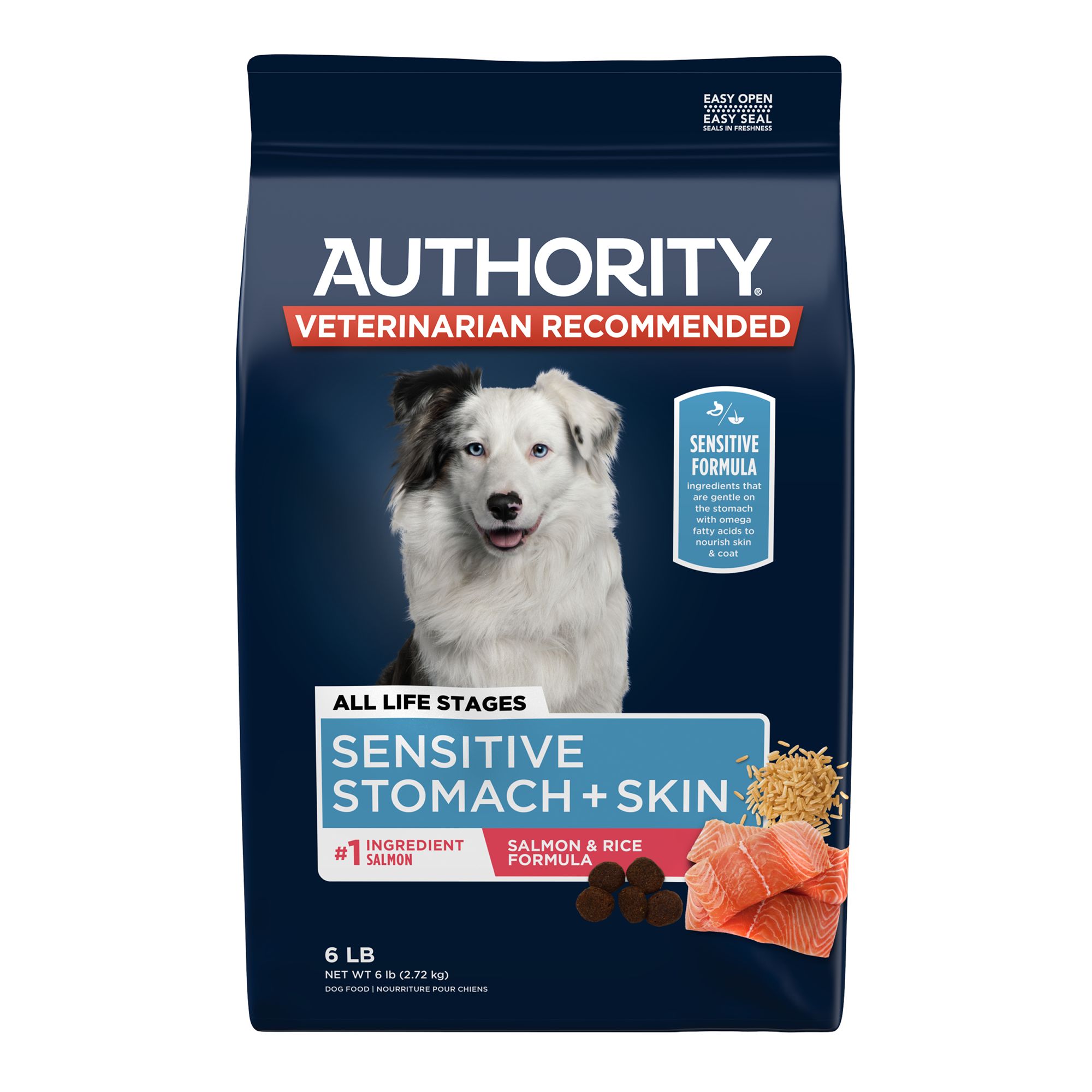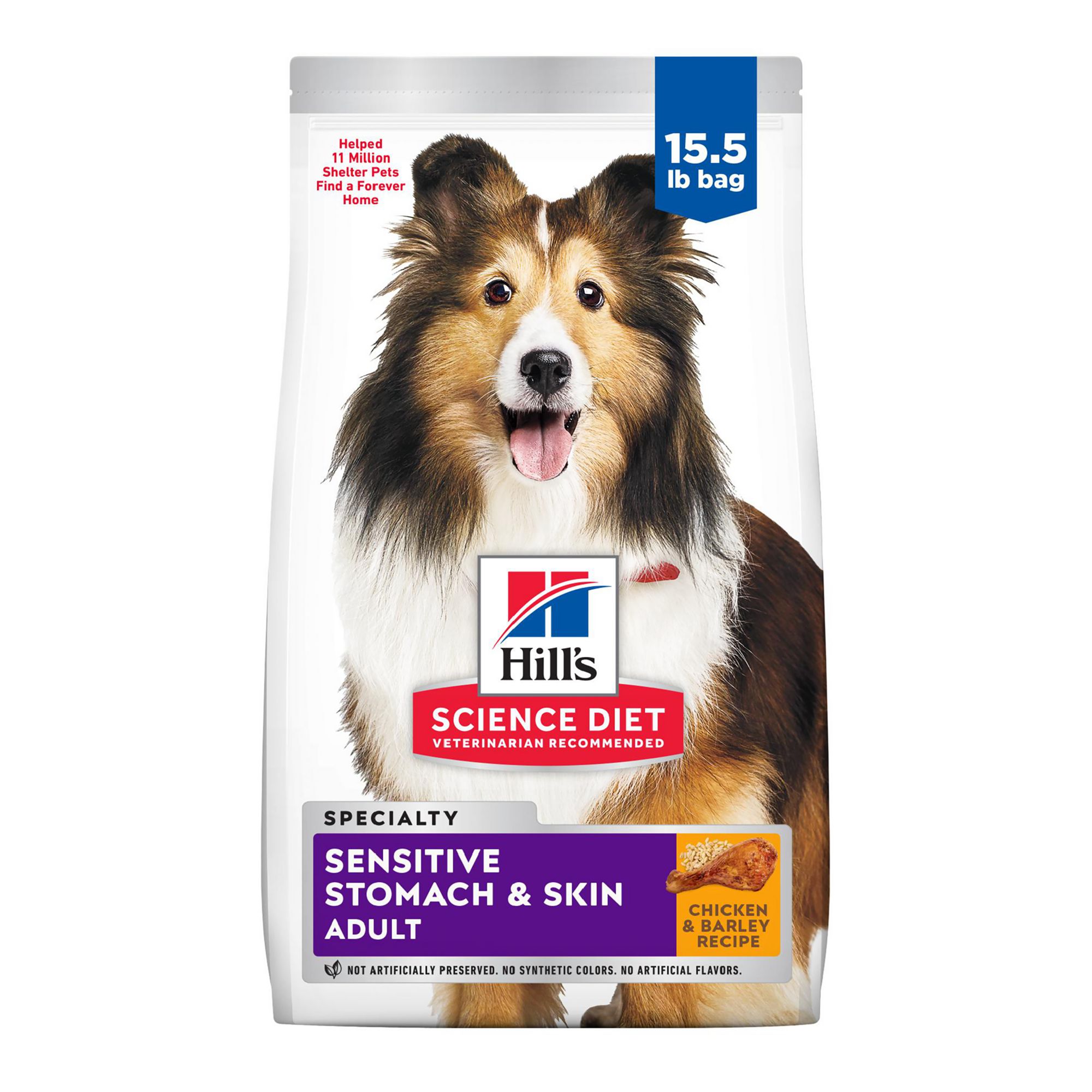Skin sensitive dog food embarks on an extraordinary journey, unveiling the intricacies of a specialized diet tailored to alleviate the discomfort of dogs with delicate skin. This comprehensive guide delves into the depths of this unique dietary approach, empowering pet owners with the knowledge to make informed choices for their beloved companions.
From deciphering the ingredients that trigger skin sensitivities to exploring the benefits of grain-free and limited ingredient diets, this narrative unfolds a tapestry of information, empowering readers to navigate the complexities of canine skin care with confidence.
Ingredients to Avoid

When selecting dog food for a skin-sensitive canine companion, it is crucial to be vigilant about avoiding ingredients that can exacerbate their delicate skin condition. Certain common components found in many commercial dog food brands have been known to trigger skin irritation and allergic reactions in susceptible dogs.
The following is a list of ingredients that should be avoided in the diet of a dog with skin sensitivities:
Artificial Colors and Flavors
- These synthetic additives are often used to enhance the visual appeal and taste of dog food but provide no nutritional value and can irritate a dog’s skin.
Wheat, Corn, and Soy
- These grains are common allergens in dogs and can cause itching, redness, and inflammation of the skin.
Dairy Products
- Many dogs are lactose intolerant and can experience digestive upset and skin irritation after consuming dairy products.
Beef and Chicken
- These are common sources of animal protein in dog food, but some dogs may be allergic to them, leading to skin problems.
Eggs
- Eggs are another common allergen in dogs and can cause skin irritation and other allergic reactions.
Preservatives and Additives
- Some preservatives and additives used in dog food, such as BHA, BHT, and ethoxyquin, have been linked to skin irritation and allergic reactions in dogs.
Ideal Ingredients
Dogs with skin sensitivities require a diet that nourishes their skin and supports its natural barrier function. Several key ingredients have proven beneficial for these dogs, providing essential nutrients and promoting skin health.
When selecting dog food for skin sensitivities, look for products that include the following ingredients:
Omega Fatty Acids
- Omega-3 and omega-6 fatty acids are essential fatty acids that play a crucial role in maintaining healthy skin. They reduce inflammation, improve skin barrier function, and promote a shiny, healthy coat.
- Good sources of omega fatty acids include fish oil, flaxseed oil, and krill oil.
Prebiotics and Probiotics
- Prebiotics are non-digestible fibers that feed the beneficial bacteria in the gut. Probiotics are live microorganisms that support a healthy gut microbiome.
- A healthy gut microbiome promotes overall health and well-being, including healthy skin.
Antioxidants
- Antioxidants, such as vitamin E and beta-carotene, help neutralize free radicals and protect the skin from damage.
- Fruits and vegetables are excellent sources of antioxidants.
Other Beneficial Ingredients
- Oatmeal has anti-inflammatory properties that can soothe irritated skin.
- Coconut oil contains lauric acid, which has antibacterial and antifungal properties.
Grain-Free and Limited Ingredient Diets
Grain-free and limited ingredient diets have gained popularity for dogs with skin sensitivities. These diets aim to eliminate potential allergens and reduce inflammation by excluding certain ingredients.
Benefits of Grain-Free Diets
- Eliminates grains, which are common allergens for dogs.
- May reduce inflammation and improve skin health.
- Can be beneficial for dogs with grain sensitivities or intolerances.
Considerations for Grain-Free Diets
While grain-free diets can be beneficial, it’s important to consider the following:
- Some dogs may not require a grain-free diet and may benefit from a diet with whole grains.
- Grain-free diets may be more expensive than traditional diets.
- Some grain-free diets may be low in fiber, which can lead to digestive issues.
Benefits of Limited Ingredient Diets
- Reduces the number of ingredients, making it easier to identify potential allergens.
- Can be beneficial for dogs with multiple food allergies.
- May improve digestion and reduce skin irritation.
Considerations for Limited Ingredient Diets
When choosing a limited ingredient diet, consider the following:
- Ensure the diet meets all of the dog’s nutritional needs.
- Start with a small amount of the new diet and gradually increase the amount to avoid digestive upset.
- Monitor the dog’s response to the new diet and consult with a veterinarian if any adverse reactions occur.
Supplements and Additives
Supplements and additives can play a crucial role in supporting skin health in dogs with sensitive skin. These include:
Probiotics
Probiotics are live microorganisms that provide beneficial effects on the dog’s digestive system. They can help regulate the immune response, reduce inflammation, and improve skin barrier function.
Omega-3 Fatty Acids
Omega-3 fatty acids are essential fatty acids that have anti-inflammatory properties. They can help reduce skin irritation, dryness, and itching.
Other Supplements
- Vitamin E: An antioxidant that protects cells from damage.
- Zinc: Essential for skin healing and immune function.
- Biotin: Supports healthy skin and coat.
Homemade Skin Sensitive Dog Food Recipes
Preparing homemade dog food for your skin-sensitive companion allows you to control the ingredients and ensure they are tailored to their specific needs. Here are some simple and nutritious recipes to get you started.
Recipes, Skin sensitive dog food
| Recipe | Ingredients | Measurements | Cooking Instructions |
|---|---|---|---|
| Boiled Chicken and Rice | – Boneless, skinless chicken breast- Brown rice- Carrots- Green beans | – 1 pound chicken breast- 1 cup brown rice- 1 cup carrots, chopped- 1 cup green beans, chopped | – Boil chicken breast in water until cooked through.- Cook rice according to package directions.- Combine chicken, rice, carrots, and green beans in a bowl and mix well. |
| Salmon and Sweet Potato | – Canned salmon- Sweet potato- Spinach- Olive oil | – 1 can (14.75 ounces) salmon, drained- 1 medium sweet potato, cooked and mashed- 1 cup spinach, chopped- 1 tablespoon olive oil | – Flake salmon and combine with mashed sweet potato, spinach, and olive oil.- Mix well and serve. |
| Turkey and Pumpkin | – Ground turkey- Canned pumpkin- Oatmeal- Apple | – 1 pound ground turkey- 1 cup canned pumpkin- 1 cup oatmeal- 1 apple, peeled and chopped | – Brown ground turkey in a skillet.- Combine turkey, pumpkin, oatmeal, and apple in a bowl and mix well.- Spread mixture onto a baking sheet and bake at 350°F for 30 minutes, or until cooked through. |
Case Studies and Success Stories: Skin Sensitive Dog Food
Numerous dogs with skin sensitivities have experienced significant improvements in their skin health after transitioning to a skin-sensitive diet. Here are a few case studies that illustrate the positive outcomes:
Atopic Dermatitis in Golden Retrievers
A study conducted by the University of California, Davis, followed a group of Golden Retrievers with atopic dermatitis. After switching to a hypoallergenic diet, 80% of the dogs showed a significant reduction in itching and skin lesions. The study concluded that a skin-sensitive diet can be an effective treatment for atopic dermatitis in Golden Retrievers.
Food Allergies in Bulldogs
A case study published in the Journal of the American Veterinary Medical Association reported on a Bulldog with severe food allergies. The dog had been experiencing chronic itching, skin infections, and digestive problems. After undergoing allergy testing and transitioning to a limited-ingredient diet, the dog’s symptoms resolved completely within a few weeks.
Yeast Infections in Poodles
Poodles are prone to yeast infections, which can cause intense itching and skin irritation. A study by the University of Pennsylvania found that a diet rich in prebiotics and probiotics can help reduce the frequency and severity of yeast infections in Poodles.
The study attributed this improvement to the beneficial bacteria in the diet, which help maintain a healthy balance of microorganisms on the skin.
Top FAQs
What are the common symptoms of skin sensitivities in dogs?
Itching, redness, inflammation, and excessive licking or scratching are telltale signs of skin sensitivities in dogs.
Can homemade dog food be a suitable option for dogs with skin sensitivities?
Yes, homemade dog food can be a viable option, as it allows for complete control over ingredients and the elimination of potential allergens.
What are the key ingredients to look for in skin sensitive dog food?
Omega-3 fatty acids, prebiotics, and hypoallergenic proteins are essential ingredients for supporting skin health and reducing inflammation.



